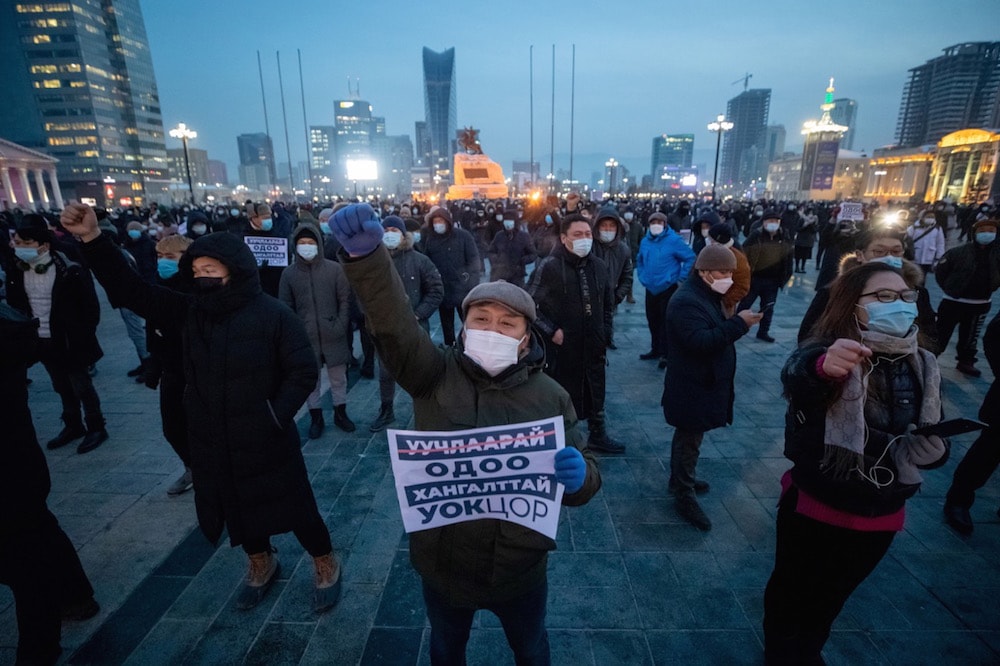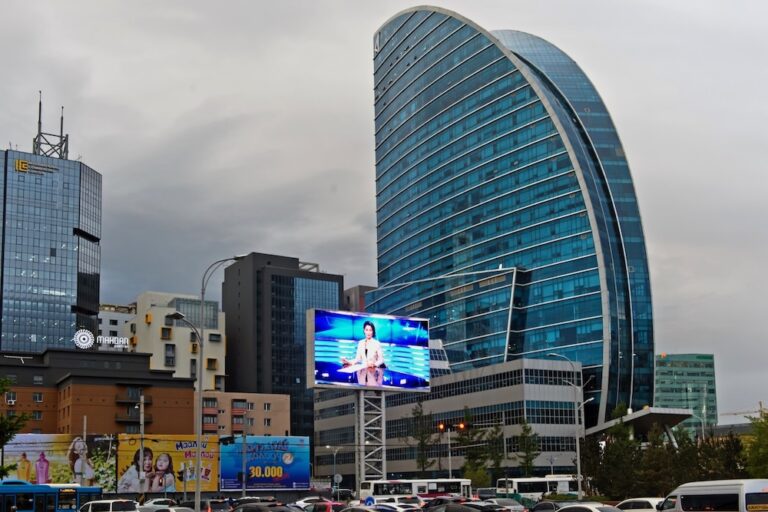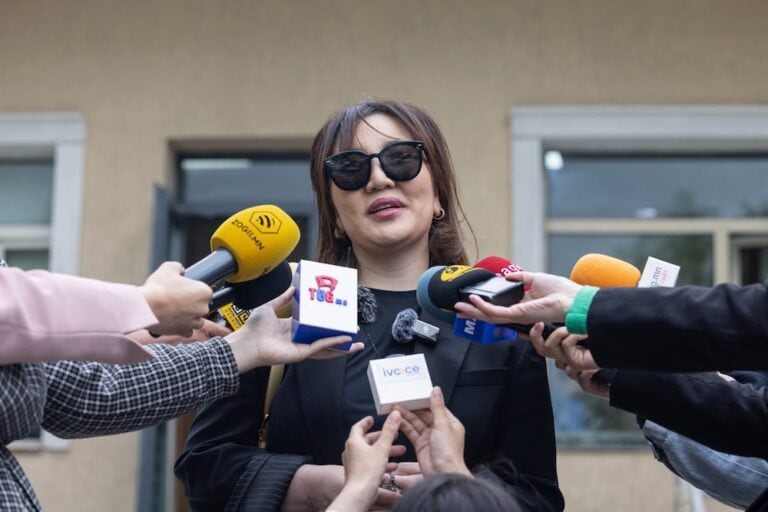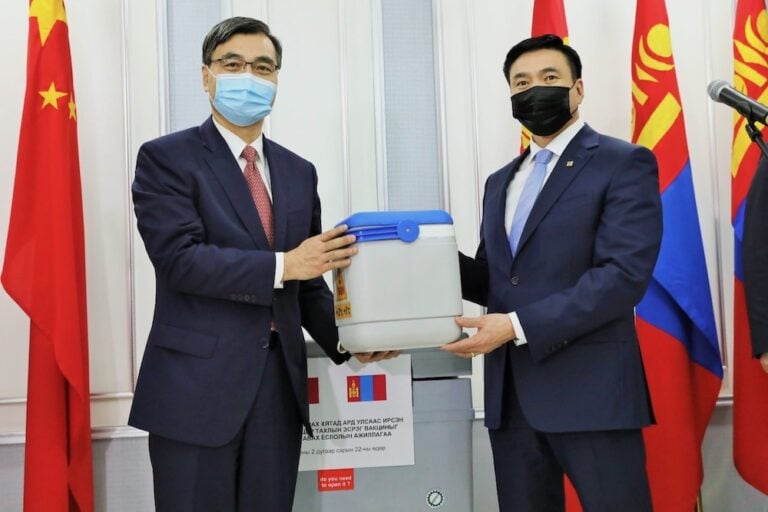Globe International Center responds to a court ruling which imposed a fine on individuals who organized a flash mob in protest against the restrictive pandemic regulations of the Mongolian government.
Due to the pandemic, the rights of citizens to freedom of expression, access to information, and peaceful demonstrations are being severely violated in Mongolia. An example is the case involving Amartuvshin Dorj and Bulgantamir D, who led a flash mob on 28 June 2021 together with other entrepreneurs to protest against the government’s decision to restrict businesses as a response measure against the spread of COVID-19. During that time, demonstrations and gatherings were restricted under certain anti-COVID-19 measures in the capital city of Ulaanbaatar.
On 18 November 2021, the First Instance Court of Sukhbaatar District ruled that there was a violation of the Capital City Governor’s Decree of 16 June 2021 regarding quarantine protocols, and that Amartuvshin D. and Bulgantamir D. organized a flash mob without official registration with an authorized body and permission of authorized officials. Because of this, the court imposed a fine of 500.000 Mongolian tugrik (approx. US$190) on each of them, in accordance with Article 5.13 of the Law on Administrative Offences.
Reacting to the court decision, Amartuvshin stressed that “The law does not apply equally, and it serves the bosses differently.” He mentioned that on 17-19 September 2021 while the same measures against the spread of COVID-19 were in force, government officials organized a big event called “Digital Nation”, where thousands of people gathered at the same square. He criticized the authorities’ unfair treatment and double standard during the pandemic. This case clearly exemplifies violations of the right to peaceful assembly in Mongolia.
Over the past year around 200 demonstrations and protests were held across Mongolia. Monitoring results of the Globe International Center indicate that since 20 November 2020, 51 cases of violations of the right to peaceful assembly and association were registered. In all of these cases, perpetrators are, or were, public officials or law enforcement officials, with violations mostly including physical assault, fines, detention, and use of force against individuals.
The National Human Rights Commission of Mongolia (NHRCM) concluded that the guarantee of enjoyment of the right to peaceful assembly in the country is weak and this space is likely to shrink further. Therefore, the stages and forms of peaceful demonstrations must be protected by law.
Responding to the global pandemic, countries all over the world are forced to introduce and adopt laws and regulations having an adverse impact on fundamental human rights. Mongolia is no exception. Last year, the Law on Coronavirus (COVID-19) prevention, fight, and mitigation of its socio-economic impact was put in place. Subsequently, existing laws, including the Law on Administrative Offences and the Law on Disaster Protection, were amended. Section 5.13.2 of the Law on Administrative Offences provides that “In the event of disaster, infectious disease or hazardous phenomena, if not criminally responsible, violation or obstruction of the quarantine, restriction of movement, and their regime established by authorized bodies shall be punishable by a fine of 500 units or imprisonment for a term of 7 to 30 days for a person, and by a fine of 5000 units for a legal entity.” Yet, it should be noted that the Law on the Procedure for Demonstrations and Assemblies of 1994 is outdated: it does not effectively regulate emerging social interactions.
Based on the aforementioned case, monitoring results as well as the conclusion made by the NHRCM, Globe International Center urges lawmakers to immediately initiate a review of the laws and policies impacting the right to freedom of peaceful assembly in Mongolia. Globe International Center also urges authorities to be more circumspect in enforcing legislation that severely violates fundamental human rights, and not to misuse emergency measures against individuals who organize peaceful demonstrations to express their opinions during the pandemic.



